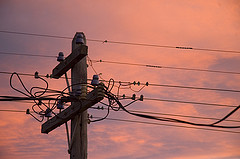
Cut Off III is based on interviews with consumers and a survey of 171 households, conducted during October and November 2012. Its key findings and recommendations are:
PAYMENT PLAN AFFORDABILITY
- Finding: Customers who had contact with their retailer prior to disconnection were most often offered a payment plan to help them pay. However, over half (54%) the people who had that contact felt the plan was unaffordable.
- Recommendation: Retailers should train all contact staff on developing payment plans for customers that are genuinely affordable and suitable to their circumstances.
- Recommendation: Retailers should deliver a consistent approach to dealing with customers experiencing payment difficulties and/or hardship so customers receive appropriate support regardless of whether they speak to call centre staff, hardship teams, debt collection and other customer contact staff.
- Recommendation: Retailers should remove late payment fees and waive reconnection fees for customers who have been disconnected.
VOUCHERS & PAYMENT ASSISTANCE
- Finding: A majority of respondents (45%) did not know about energy and water vouchers and the water Payment Assistance Scheme (PAS).
- Recommendation: The NSW Government should create and deliver an information campaign to inform all NSW households about assistance programs. The campaign should target consumers with little awareness of assistance, such as those in the workforce and/or CALD communities.
FINANCING RECONNECTION
- Finding: More than half (53%) of respondents borrowed money from friends or family so they could reconnect their electricity, gas or water. Forty per cent (40%) delayed other payments.
- Recommendation: The NSW Government should increase funding of emergency assistance programs, such as the Energy Accounts Payment Assistance (EAPA) Scheme, so that they keep pace with increases in disconnection rates.
CONTACT WITH RETAILERS
- Finding: Almost one in three respondents (31%) said they had no contact with their utility company prior to disconnection.
- Recommendation: Retailers should investigate using text messaging and other methods to communicate with their customers, as letters often go unopened.
- Recommendation: Retailers should provide a call back service to minimise customer call costs and wait times.
ASSISTANCE IN COMMUNITY LANGUAGES
- Finding: A quarter of households that were disconnected (25%) speak a language other than English at home. This is a significant increase compared to 2008 findings.
- Recommendation: Retailers should highlight the availability of interpreter services and provide information on payment plans and assistance in languages other than English.
- Recommendation: Emergency assistance should be made available through channels used by culturally and linguistically diverse (CALD) community members to access assistance.
SPEED OF RECONNECTION
- Finding: Most respondents were reconnected within 24 hours of being disconnected. Electricity was significantly faster to reconnect than gas.
- Recommendation: Gas retailers should use electricity reconnection speeds as a benchmark to improve gas reconnection processes and timelines.
Related findings from the Independent Pricing and Regulatory Tribunal (IPART):
- 23,207 households were disconnected from electricity in NSW in 2011-12, up 25% on the previous year, according to IPART.
Photo: Flickr